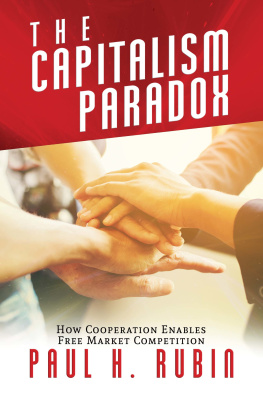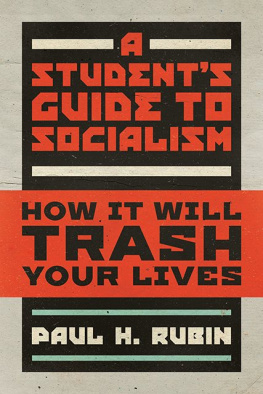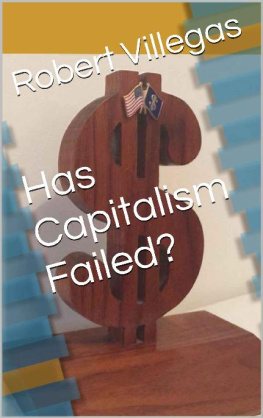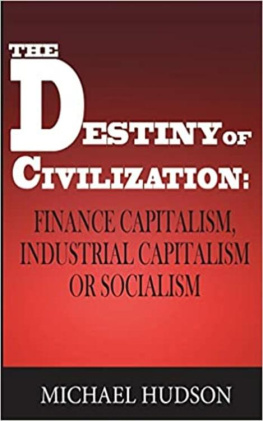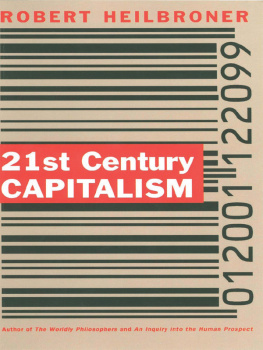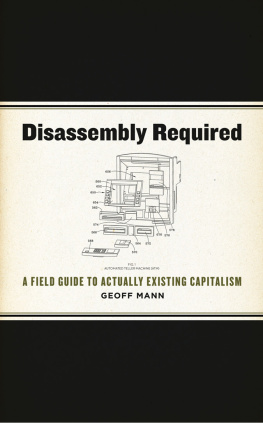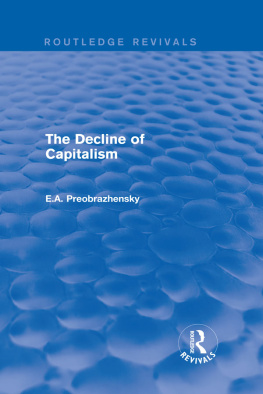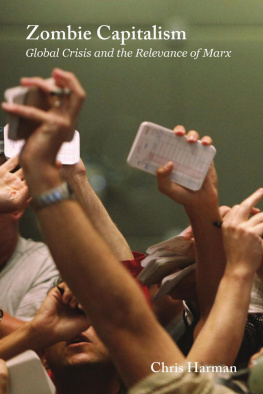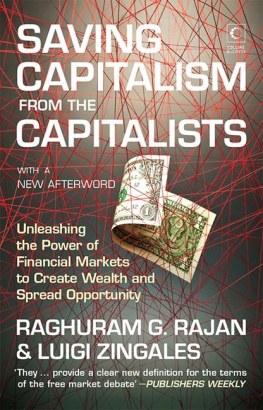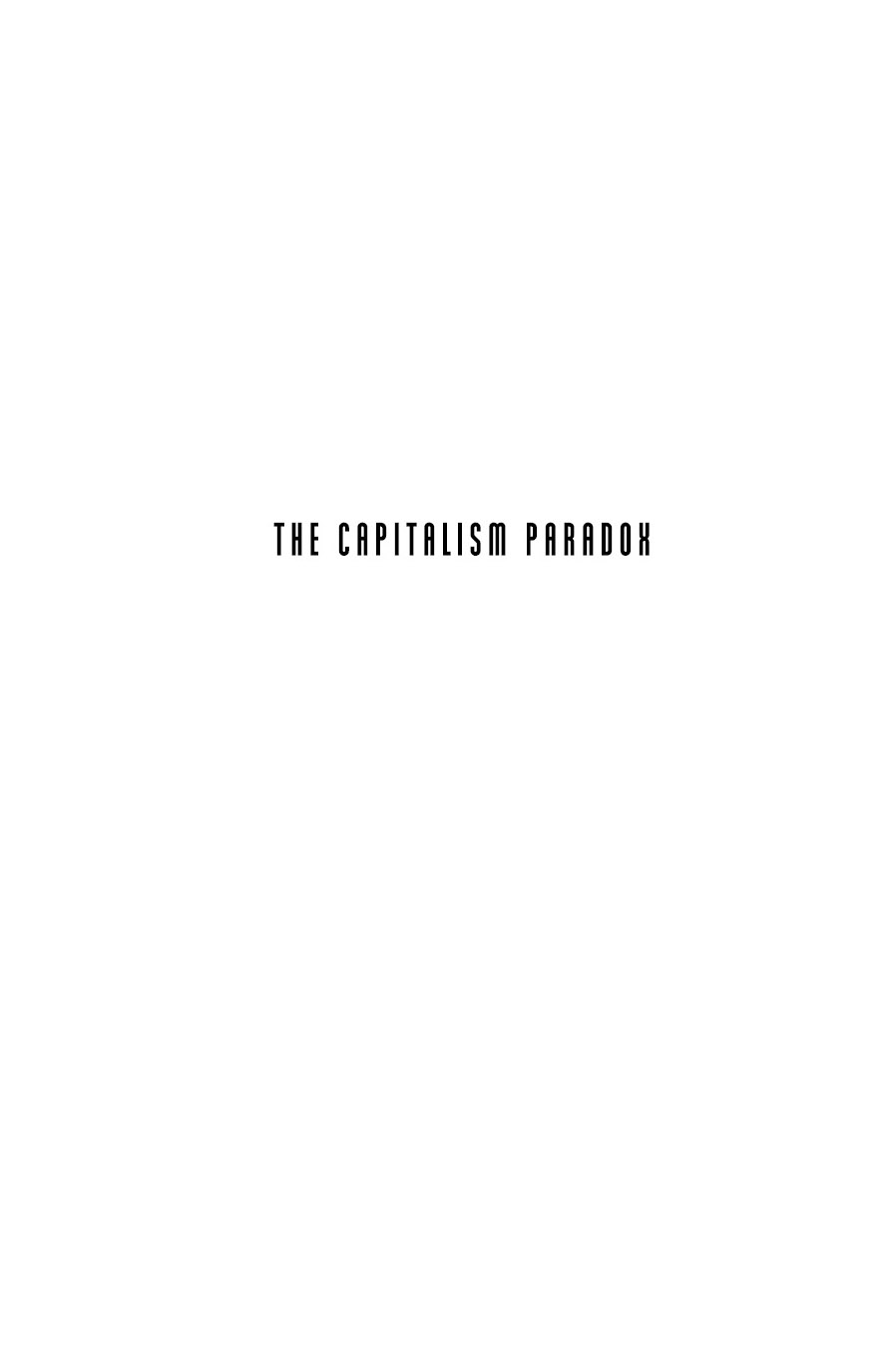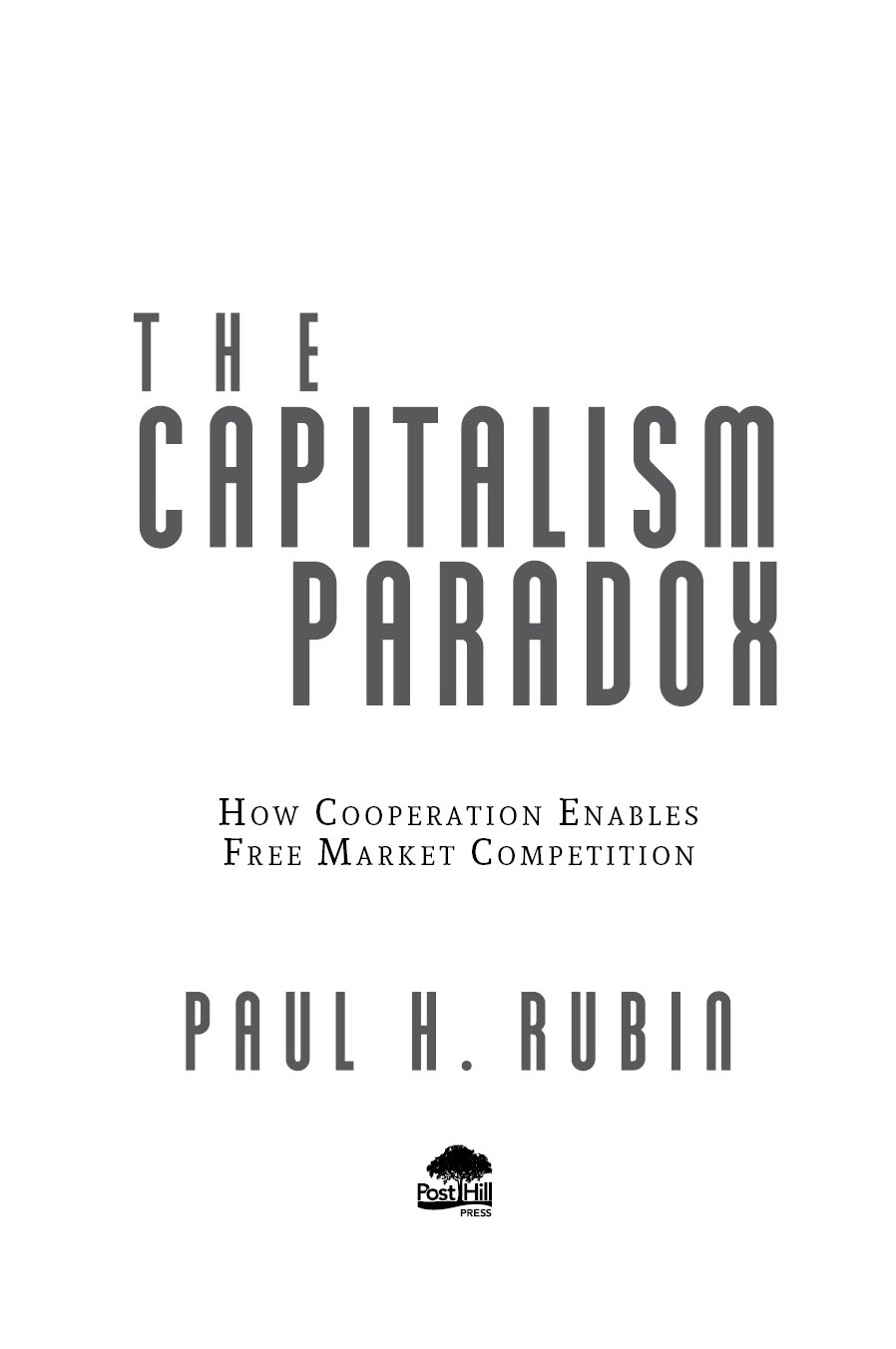Advance Praise for
The Capitalism Paradox
Political economy in its finest explores the institutional arrangement that promotes productive specialization and peaceful social cooperation. Paul Rubins The Capitalism Paradox is an outstanding corrective to mischaracterization and misunderstanding of political economy, often perpetuated by economists themselves. At the foundation of our understanding and appreciation of the market economy must be this recognition of how trade and commerce in general reinforces human sociability and social cooperation. The market is a positive sum game of wealth creation through human cooperation. Brilliant, concise, and to the point, Rubins work should be read by all students of society.
Peter Boettke , University Professor of Economics and Philosophy, George Mason University
In this wonderful book, Paul Rubin gently takes economists to task for talking about competition as if it is the engine of markets and the economy and forgetting that cooperation is the real engine. He concisely and persuasively reminds economists that market transactions make both parties happy, not one a winner and the other a loser, and argues for new ways of explaining economics in that light.
Dr. Adrian Moore , Vice President, Reason Foundation
Speaking is natural to humans while reading must be taught. According to Paul Rubin, politics (and its zero-sum view of the world) is also natural while economics (and its positive-sum view of the world) must be taught because humans evolved when life was zero-sum. There is no better way for someone to learn an appreciation for markets, economics, and the positive-sum nature of modern life than to read this book by Professor Rubin.
Peter Van Doren , Senior Fellow, Cato Institute and Editor,
Regulation Magazine
A BOMBARDIER BOOKS BOOK
An Imprint of Post Hill Press
The Capitalism Paradox:
How Cooperation Enables Free Market Competition
2019 by Paul H. Rubin
All Rights Reserved
ISBN: 978-1-64293-139-6
ISBN (eBook): 978-1-64293-140-2
Cover photo image: Created by JcompFreepik.com, image: Freepik.com.
This cover has been designed using resources from Freepik.com
Cover design by Abby Adelman
Author photo by Barbara Banks Photography
Interior design and composition by Greg Johnson, Textbook Perfect
No part of this book may be reproduced, stored in a retrieval system, or transmitted by any means without the written permission of the author and publisher.

Post Hill Press
New York Nashville
posthillpress.com
Published in the United States of America
To Martie Moss,
my exceptional and beautiful wife,
who has always encouraged
and supported my work.
Contents
E conomists are the most important advocates of free markets (In a free market economy, property rights are well defined and there is minimal government intervention). The Reagan administration was famous for supporting markets. But even so, when I was in president Ronald Reagans Council of Economic Advisers, I found that we economists were the major believers in markets. Others supported us in defending markets when various pro-business or deficit-limiting policies were involved, but the CEA was the only entity that actually supported markets and market freedom under all circumstances.
But even though we economists are the major supporters of markets, in some cases we actually sabotage them. This is not intentional; we think we are supporting markets, and we often are. But our language often serves to turn people away from markets, and acts to generate hostility. In particular, our use of the term competition and our love of competitive markets often serves to disguise the true nature of markets, and to turn people away from the markets and from economics. In fact, markets are much more cooperative than they are competitive, and if we emphasized this more, then people would better understand the benefits of free exchange. We economists make our living by providing advice about the economy, but one purpose of this book is to provide advice to my fellow economists in order to make our advocacy more effective.
This book aims to explain and clarify this argument. In doing so, I make several interrelated points. First, markets are the most efficient institution for running an economy, and the more an economy relies on markets, the higher the level of happiness, health, and wealth. Second, many people do not understand markets or the benefits they provide. Third, people have no intuitive understanding of economics or how an economy functions. Fourth, one reason why people may not like markets is because they view markets as being competitive, and many people do not like competition because they associate competition with a chance of losing. Those who view the world as competitive are more likely to dislike markets. Fifth, markets are actually more cooperative than they are competitive, and we economists have erred by emphasizing the competitive aspect of markets while ignoring or downplaying the cooperative aspect. Finally, there is an important role for competition, but competition is subordinate to cooperation in an economy. Cooperation is the main event and competition is the opener.
Benefits of Markets
Markets are truly amazing institutions. Market economies have generated tremendous benefits for mankind. Markets by far provide more benefits than any other form of economic organization. We can see this at whatever level we look: globally, between countries, and even within countries.
At the global level, the results of the most important social science experiment in history are in. The Soviet Union, the largest attempt at a nonmarket economy, has collapsed. The market economies of the West have survived and thrived, albeit with some rocky patches.
We also have evidence from smaller experiments. Both Korea and Germany have been divided into market and nonmarket segments. In both cases, the market economies (South Korea, West Germany) have done extremely well, and the nonmarket segments have either collapsed (East Germany) or are providing extreme misery for their residents (North Korea). More recently, Venezuela has replaced a market economy with a centrally planned economy and has gone from prosperity to chaos, hyperinflation (1 million percent per year), dictatorship, and starvation.
At a more detailed level, there is pervasive evidence that more free market economies work better than less free economies. Students of economic freedom say that freedom exists when (1) property acquired without the use of force, fraud, or theft is protected from physical invasions by others, and (2) individuals are free to use, exchange, or give their property to another as long as their actions do not violate the identical rights of others. This leads to five components of economic freedom:
The size of government: government spending, taxes, and government enterprises are limited.
Property rights are protected from government and from private predators, and there is rule of law and freedom of contract.

